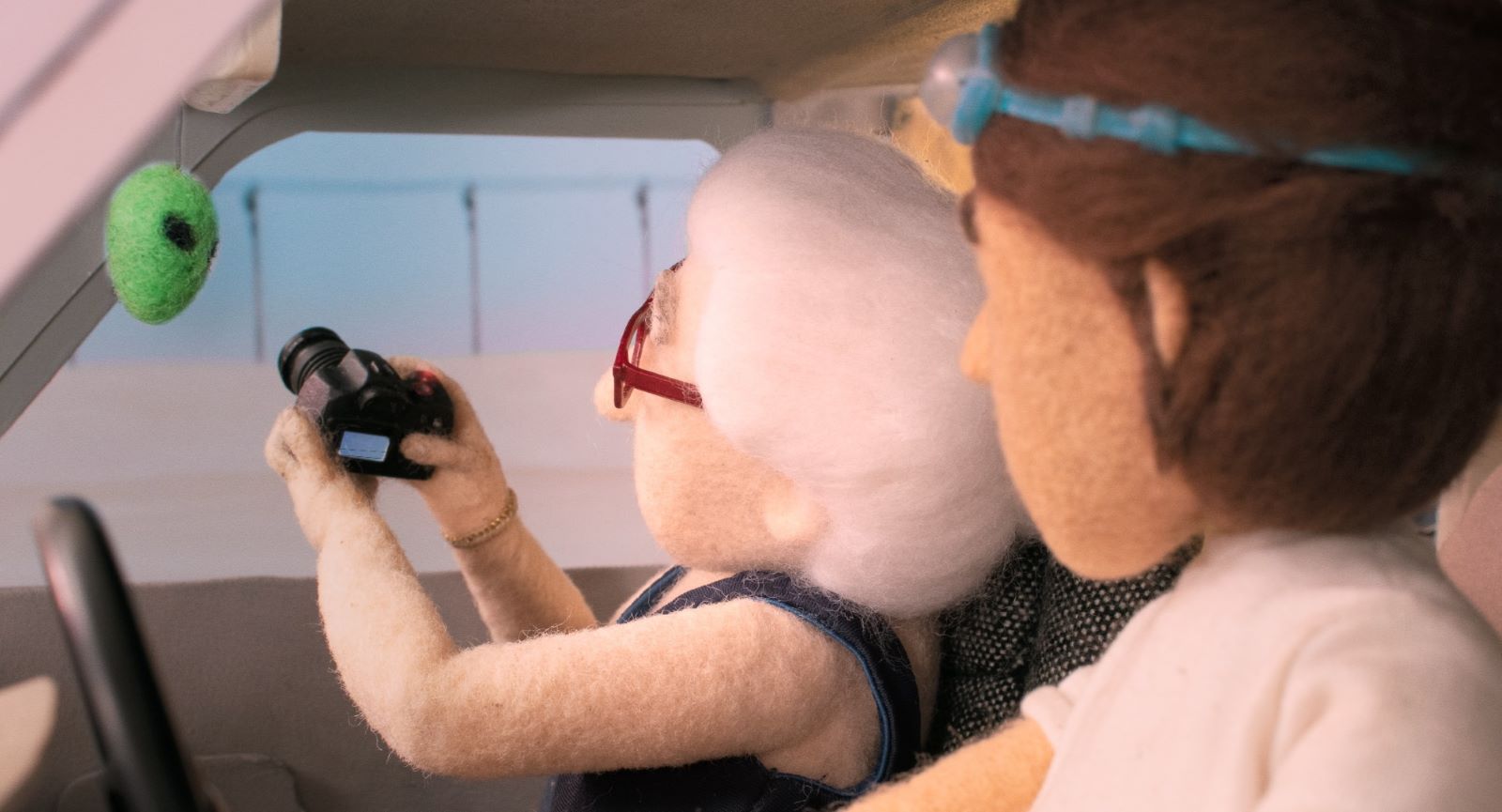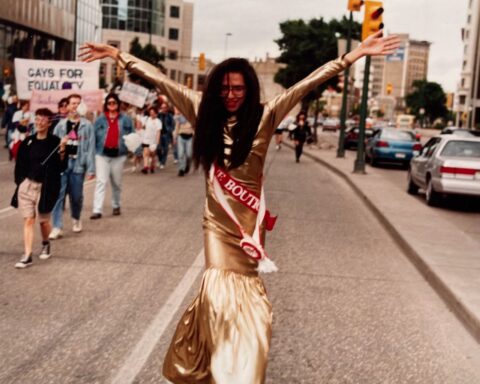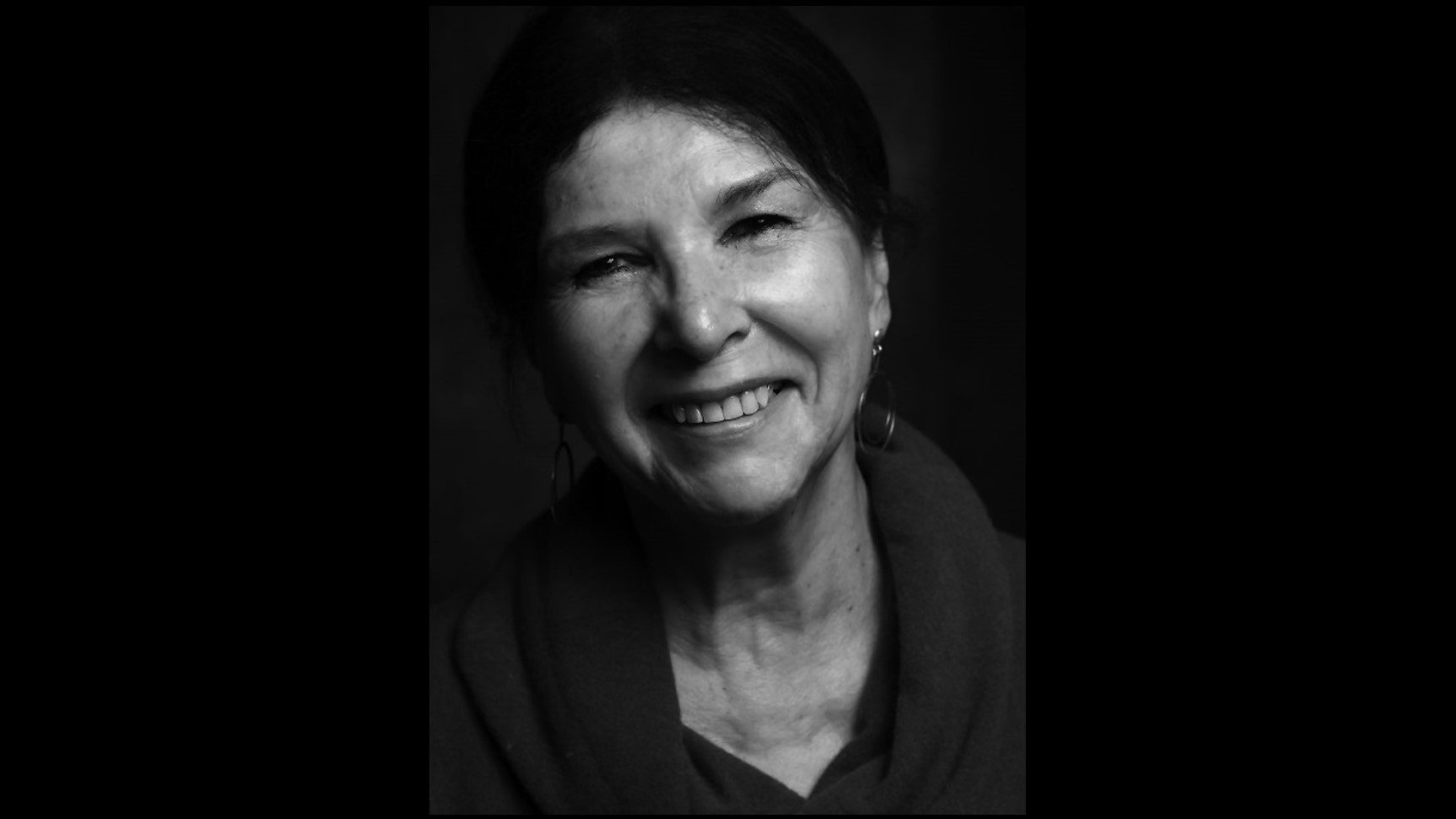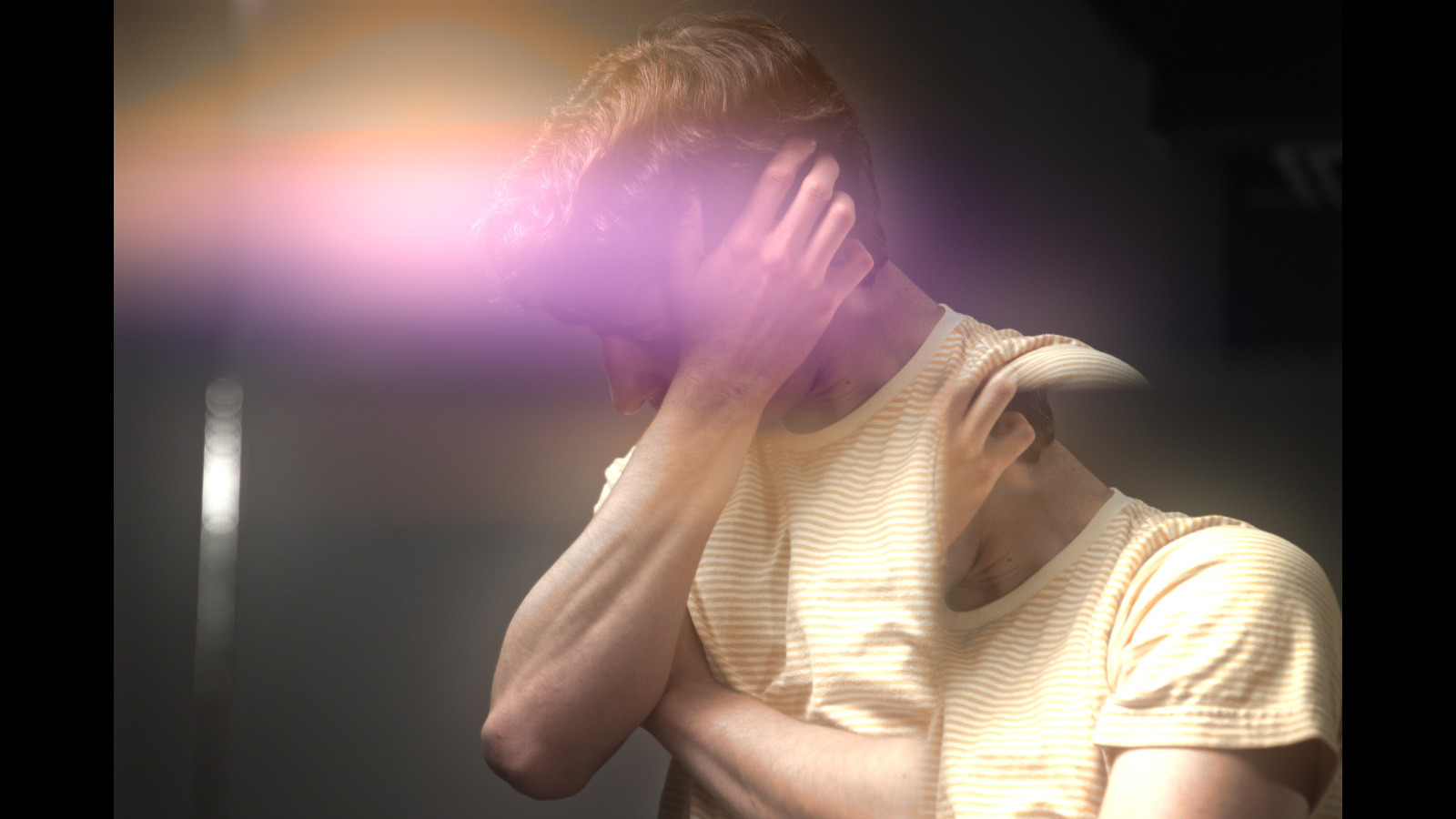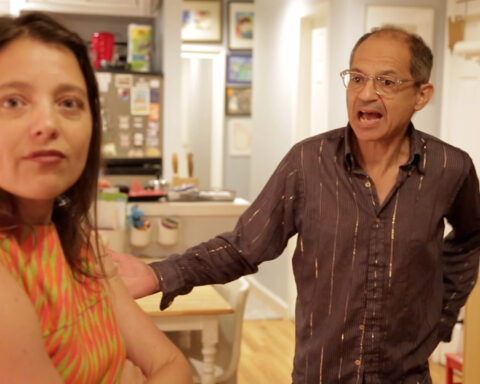There was no shortage of innovation among the films at the 27th annual Regard: Saguenay Short Film Festival. Regard’s programming was especially notable for the strength of its documentaries. These films feature memorable characters and stories told with artfully astute aesthetics that honour their subject’s perspectives and advance documentary form.
For example, the Dutch film Neighbour Abdi (Burrman Abdi), directed by Douwe Dijkstra, boldly advances subject-filmmaker collaboration. The film invites Somalian refugee Abdiwahab Ali to tell the story of his journey from Mogadishu, Somalia to the Netherlands. As Abdi recounts his experience in a confessional interview, the film doesn’t feature a conventional direct address. Rather, Abdi generally looks off-camera as he tells Djikstra about violence on the streets of Mogadishu. Meanwhile, the visuals transport audiences to the streets of Mogadishu where bloodshed is so normalized that children throw ducks at one another while gunfire explodes nearby. Pieces of concrete debris are the new baseballs.
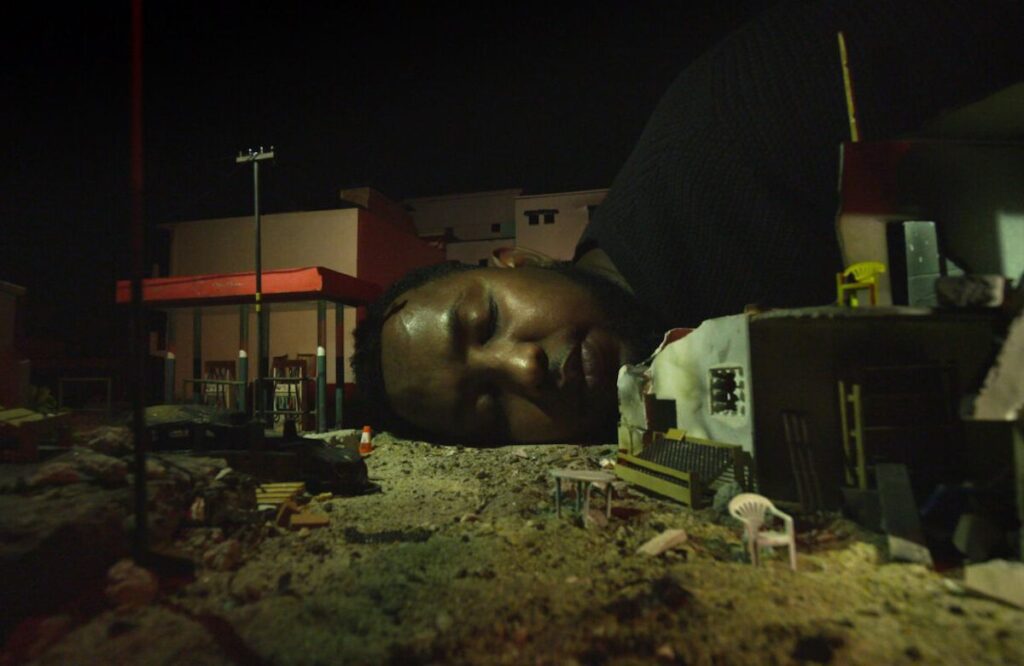
The film beautifully energizes these streets by building them in miniature and making the dramatization of Abdi’s life part of the documentary’s design. Actors appear superimposed atop the miniature set after performing under Abdi’s direction before a green screen. As Abdi revisits his past through these dramatic recreations, he imparts the wisdom of his experience to a younger generation of Somali refugees. Moreover, as Djikstra documents Abdi, the film empowers its subject through the act of filmmaking while respecting the remove through which one director observes another. This dual feat of filmmaking is a worthy winner for Regard’s Jury Prize for Best Documentary Film.
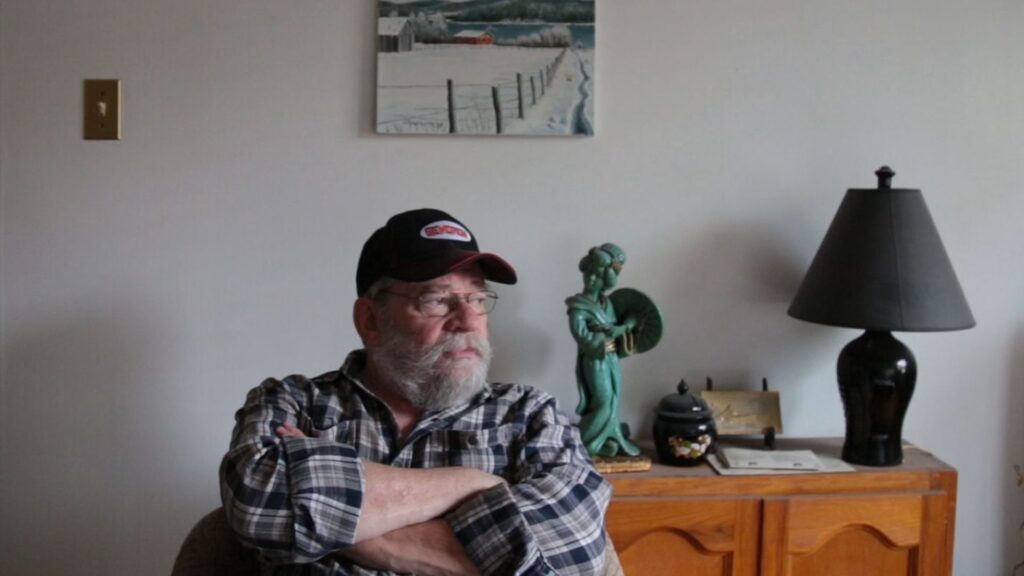
Similarly, Regard’s Grand Prize winner for Best Canadian Film is also a documentary. While director Charles-Émile Lafrance’s The Thirty-Second Season (La trente-deuxième saison) is among the more aesthetically conservative films from this year’s festival, it delivers a rewarding character study thanks to its objective no-frills portrait. Lafrance observes his former neighbour, Normand, as the aging man comes to terms with the death of his long-time wife. Normand offers a great salt-of-the-earth character and he surprises with his vulnerability. Lafrance finds in Normand’s story a nuance message of grief and letting go.
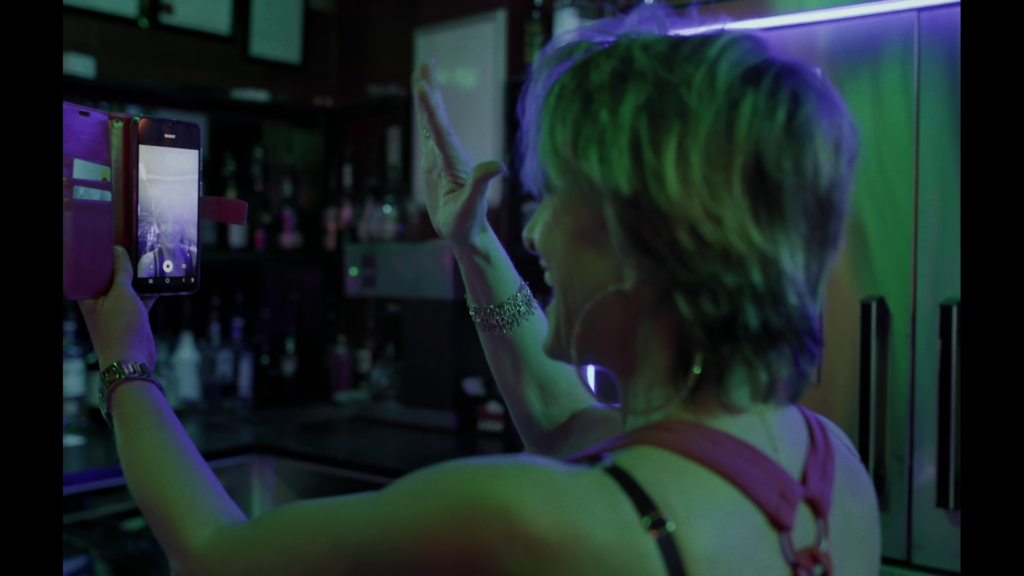
One finds another great character study in Fire-Jo-Ball from director Audrey Nantel-Gagnon. This NFB doc offers a portrait of Quebecois bartender Jo-Ann, who, at 57-years-young, dreams of being a pop star sensation. Nantel-Gagnon observes Jo-Ann as she gets gussied up for work and wrangles the patrons of the local watering hole to put their drinks up in merriment. At work, Jo seems like the life of the party. The men especially take to her. At home, however, things are different. Nantel-Gagnon handles Jo-Ann’s mood swings quite remarkably by harnessing her character’s social media savviness. Fire-Jo-Ball integrates Jo-Ann’s candid confessionals posted via online stories in which she shares her aspirations, but also speaks frankly about her mental health. Through Jo-Ann’s story, the film illustrates the brave faces we adopt to convince others, as well as ourselves, that all is well. But the film also finds a refreshing note in Jo-Ann’s story, which is by no means unique among the sea of talented hopefuls on social media aching for their shot at fame. Rather, it sees in one woman’s story a universal truth about the desire to be loved.

An invigorating exploration of place, meanwhile, comes in About Memory and Loss (Notes sur la mémoire et oubli) from director Amélie Hardy. This brilliant essay film offers a visual adaptation of Rafaële Germain’s text Un présent infini to consider the ephemeral nature of archives. Using the peculiar naming of a road after a Portuguese poet in a bland Quebec housing development as the starting point, Hardy energetically considers the act of memorialization. The film notes how we recognize some people and moments of history over others, while the digital age provides the nadir of archival folly with its treasure trove of seemingly pointless records. (Cat videos, etc.) Yet Hardy’s playful approach to the sheer randomness of archival habits invites a wealth of deep questions in the film’s eight minutes. This is a film that invites far more questions than answers and inspires a viewer to think critically about the choices one makes about putting stories on record. (Even choosing which films to cover at a festival, for example.) Moreover, the philosophical query proves especially intriguing in light of the debates about re-naming schools, statues, streets, and monuments to address Canada’s colonial past. While Hardy doesn’t cite this huge topic directly, one can sense it percolating under the playful musings. The film indirectly broaches the subject, though, by asking why people cling to some memories at the expense of histories lost to time. It’s a smart, thoughtful, and provocative work by a promising talent.
Danish filmmaker Adam Paske, on the other hand, has a great deal of fun flipping the format of ethnographic cinema in Leisure Time – A Summer’s Day (En Dag I Sommerhus). The film follows the structure of a waking day as Danes repose in their summer homes. The film opens with the droll shot of a vacationer skipping jump rope in the nude, which establishes the humour to come. Paske captures the routines of the vacationers by observing them in long takes, finding a few minutes throughout the day that show the routines that people create for themselves during leisure hours. A woman narrates her day to her dog, for example, while a young couple passes the hours in bend. The film’s measured cadence lends a dry sense of humour to the banality of these summer hours, yet finds refreshing comfort in the simple pleasures the characters enjoy free from the stresses of the rat race. It’s a fine piece of observational cinema.
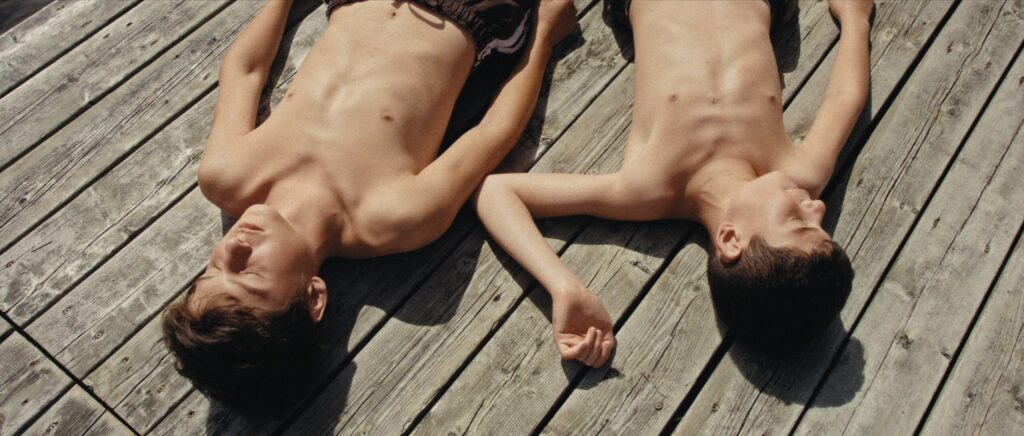
Summer hours also fuel the excellent documentary Oasis by Quebecois filmmaker Justine Martin. This poignant feat of cinema vérité drops audiences into the lives of brothers Raphaël and Rémi Cormier as they relish their holidays. The twins are inseparable, yet Martin finds a bittersweet parallel between their lives and the fading summer light. Rémi has a disability and isn’t maturing at the same rate as Raphaël. However, as Martin observes the boys, Oasis shows the strong bond that exists between twins as Raphaël proudly assumes a protective role. Featuring gorgeous cinematography by Myriam Payette, Oasis, like Leisure Time, basks in the glow of the summer sun and captures the warmth of the natural light to convey the strength of the twins’ bond. This film is profoundly intimate in its portrayal of youth and innocence as it immerses viewers the brothers’ relationship one could easily mistake Oasis for a coming of age drama until an interview question from Martin, speaking off camera, reveals the documentary form. It beautifully conveys how these boys are everything to each other, capturing the idyllic innocence of summer hours in a world in which it seems nobody else exists but them.
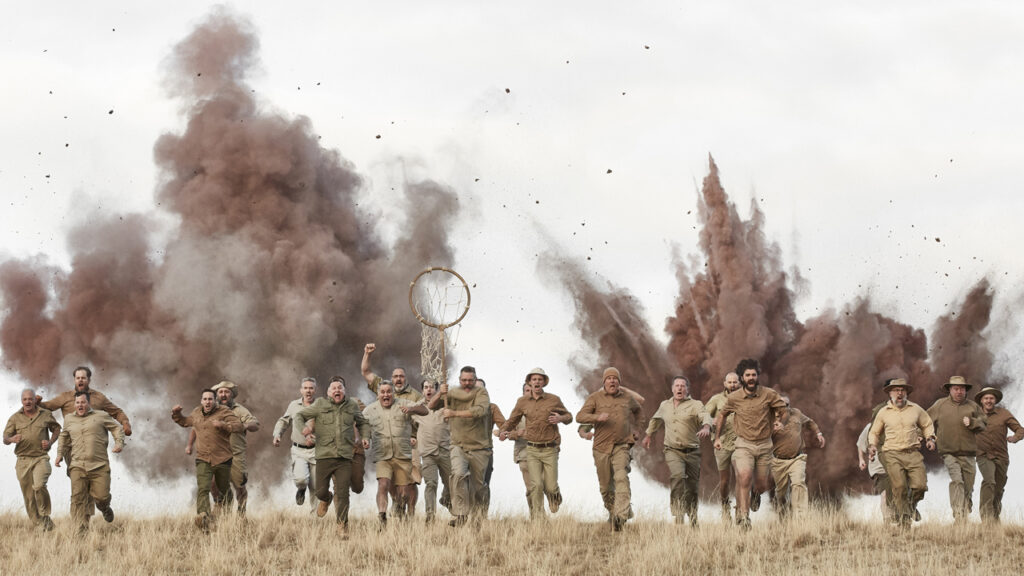
One sees another inspired take on family dynamics in Darcy Prendergast’s extraordinary film Strange Beasts. The darkly funny Australian doc tells the story of Prendergast’s zookeeper father, Ron, who narrowly escaped death amid the decline of the once-popular Bacchus Marsh Lion Safari. Ron recounts his traumatic experience of being mauled by a tiger when the zoo began cutting corners to save costs. The elder Prendergast has a natural flair as a storyteller and the film smartly hinges on his skills as a raconteur as he brings the saga to an unexpected twist: upon leaving the hospital, he discovered that the same tiger escaped from the safari and tracked him down. It mauled him again.
Strange Beasts, however, is far more than a novel family affair. Prendergast presents archival footage of the giant cats in action. Lions and tigers prowl through the film as the zookeeper speaks to the animals’ power, might, and charm. However, as the elder Prendergast tells his saga of cheating death not once but twice, his son finds an ironic tragedy as the tigers meet violent ends. Strange Beasts grows into an unexpected consideration of mortality, reminding audiences of life’s only other inevitability after taxes.
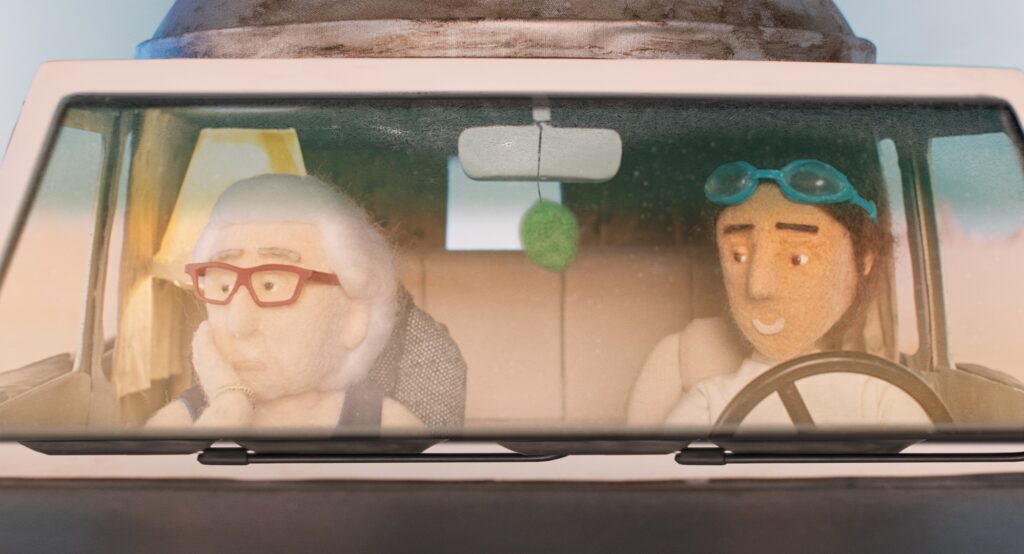
Another poetic consideration of mortality, finally, comes in Raquel Sancinetti’s poignant film Madeleine. The Quebecois film, winner of the FIPRESCI prize at Saguenay (of which I was a member on the jury), is a moving story of friendship that spans generations. Sancinetti draws upon audio conversations with her 96-year-old subject, Madeleine, who reflects upon growing old. Madeleine tells her younger friend that she isn’t bothered to get outside much these days, but the filmmaker has a shrewd plan. Madeleine employs wonderful stop-motion animation to take the elderly subject on one last adventure. The film adopts the tropes of a road movie as Sancinetti and Madeleine, now in puppet form, drive to the beach.
Along the way, the film cuts back to vérité images of the real Madeleine as Sancinetti hands her the camera and asks her to film herself. These shots reveal Madeleine’s ongoing curiosity and playfulness, which Sancinetti evokes through the joyful animation. There’s a great sense of humours in the details of the storytelling, too, as Madeleine situates the trip amid the COVID-19 pandemic as background characters wear protective face covers and an errant mask flies through the car departs for the adventure. The timing of the story makes Sancinetti’s use of animation doubly profound. The film is a reminder that elderly residents of long-term care facilities were subjected to especially arduous stretches of isolation during the pandemic. Sancinetti quite beautifully takes Madeleine out into the world when lockdown measures confined her to her room. As Madeleine transports its subject on a voyage that only animation could allow, it offers a wonderful journey of heart and humour as both women grow along the way. Madeleine confronts her mortality, while Sancinetti accepts the stage she is at in her own life by drawing upon her companion’s indefatigable joie de vivre. Madeleine is a true coup de coeur and the highlight in a strong programme at this year’s Regard – Saguenay Short Film Festival.




